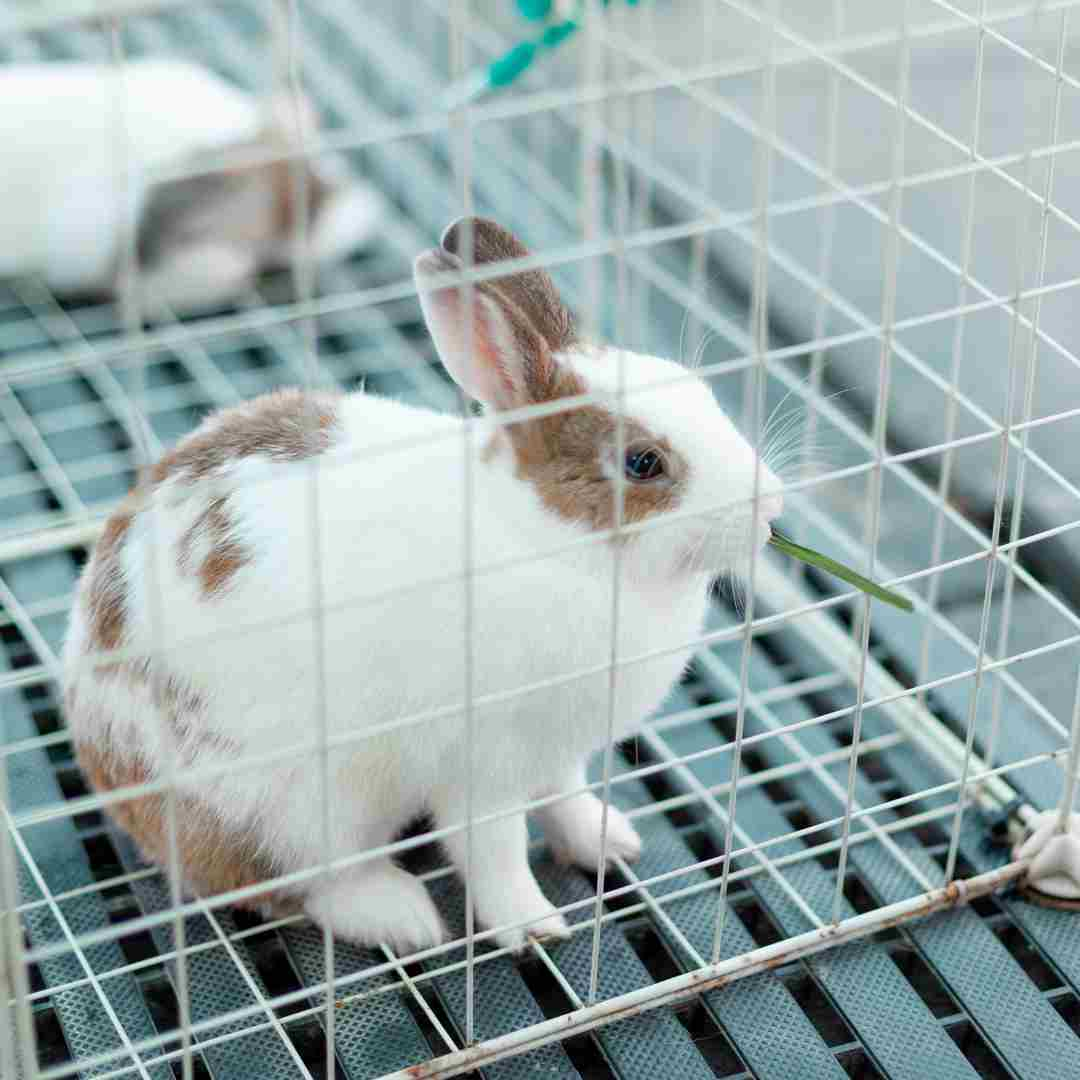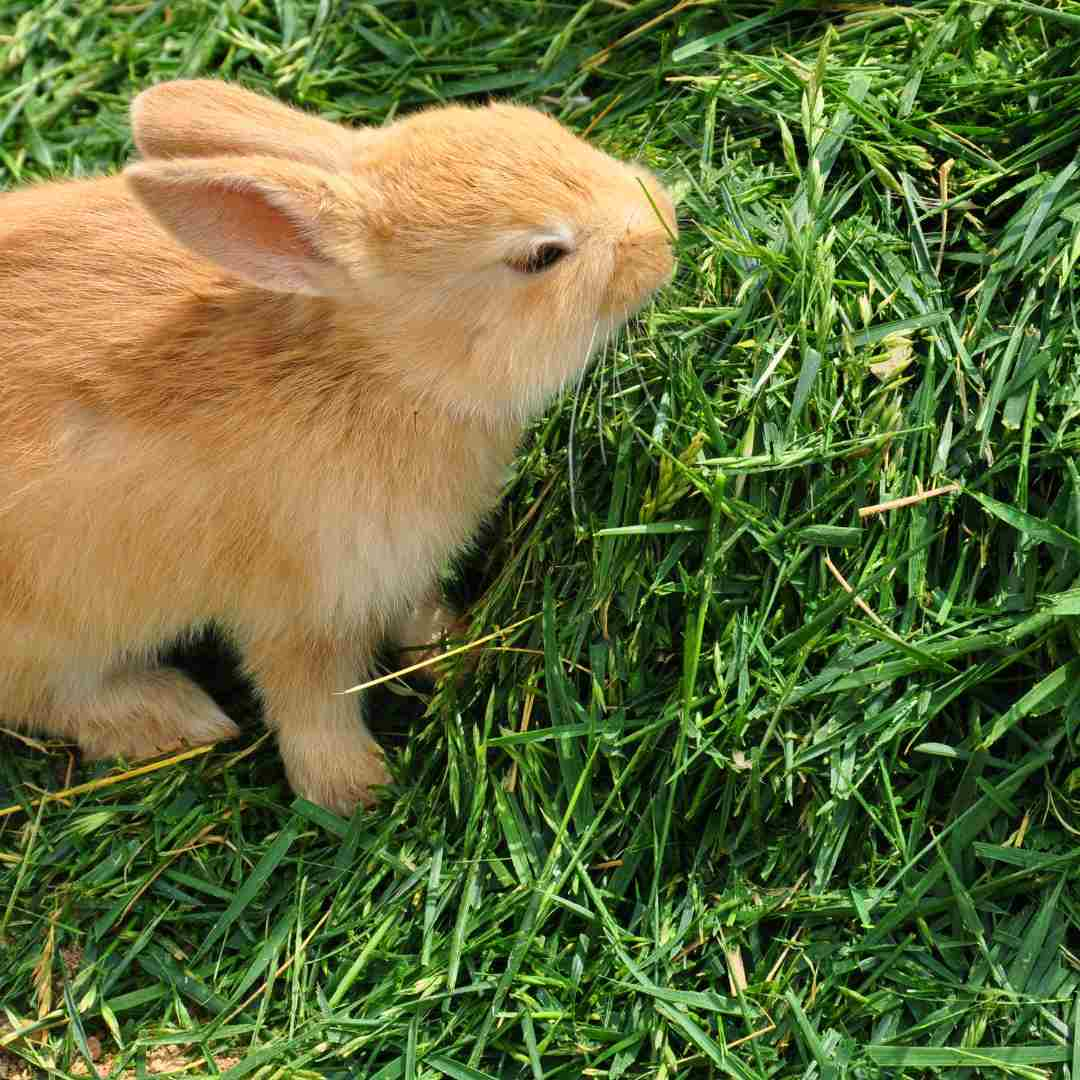Rabbit Herbivory's Nutritional Benefits
Rabbits require necessary nutrients to keep healthy and active, thus herbivorous diets are best. Herbivorous rabbits are meant to eat plants. This rabbit diet is high in fibre, vitamins, minerals, and other components needed for good health.
Rabbits need fibre to maintain their digestive systems. For proper digestion and to avoid diarrhoea and constipation, rabbits need a high-fiber diet. Fiber-rich foods wear down rabbit teeth and prevent overgrowth.
Rabbits need vitamins and minerals too. These nutrients boost rabbit immunity and strengthen bones and muscles. Vitamins and minerals make rabbit coats glossy and healthy.
Herbivorous diets supply rabbits with needed fatty acids for good health. Essential fatty acids assist rabbits' skin, coat, joints, and muscles function.
Herbivorous diets provide vital nutrients and maintain rabbit weight. For rabbit health, a high-fiber, low-fat diet helps maintain their weight.
The best food for rabbits is herbivorous since it supplies the nutrients they need to stay healthy and active. This rabbit diet is high in fibre, vitamins, minerals, and other components needed for good health.
A Balanced Diet for Herbivorous Rabbits
Herbivorous rabbits need a balanced diet to stay healthy. Due to their herbivorous nature, rabbits should only eat plants. Hay, fresh veggies, and a few pellets make a nutritious rabbit diet.
Hay should be your rabbit's main food. It should always be available and high-quality. Hay with high fibre and low protein and calcium is good. It aids digestion and tooth wear.
Include fresh veggies in your rabbit's diet. Kale, spinach, and romaine lettuce are beneficial. You can also give them carrots, celery, and bell peppers. Due to their sugar content, they should be administered in tiny amounts.
Finally, feed your rabbit a few pellets. Pellets provide concentrated nutrients and should be administered in modest doses. Only 10% of your rabbit's food should be them.
You may feed your herbivorous rabbit a balanced diet by following these suggestions. This will keep them healthy and happy.
Herbivorous Rabbit Pets: Pros and Cons
Keeping a herbivorous rabbit as a pet can be gratifying, but weigh the pros and cons first.
Pros
Herbivorous rabbits are low-maintenance pets. Easy to care for, they need little grooming and may be litter trained. Rabbits don't bother neighbours or roommates because they're silent. Rabbits are also gregarious and build deep ties with their owners.
Cons
A specific diet for herbivorous rabbits is costly. They also need a large cage or hutch, which takes up space. Dental difficulties are common in rabbits and can be expensive to cure. Rabbits can destructively eat furniture and other home goods.
In conclusion, owning a herbivorous rabbit can be beneficial, but you should weigh the pros and cons first.
How to prevent common herbivorous rabbit health issues
Herbivorous rabbits are popular pets because they are kind and playful. Rabbits have health difficulties like other animals. Be aware of common rabbit health issues and how to prevent them to keep your rabbit healthy and happy.
Dental disease is frequent in rabbits. If rabbit teeth are not chewed, they can become too large and cause pain and difficulties eating. Give your rabbit plenty of hay, wood blocks, and chew toys to prevent dental disease.
A typical rabbit health issue is gastrointestinal stasis. This illness slows or stops the digestive system, causing gas and other toxins to build up in the gut. Always provide your rabbit with fresh hay, water, and a balanced diet of fresh veggies and pellets to prevent gastrointestinal stasis.
Rabbits also get fleas, mites, and worms. Debris should be removed from your rabbit's living space and checked often to prevent parasites. Treat your rabbit at the vet if you suspect parasites.
Follow these simple actions to keep your rabbit healthy and happy.
Environmental Impact of Herbivorous Rabbit Diet
Herbivorous rabbits are abundant worldwide and have a big impact on the ecosystem. Rabbits eat mostly plants. This diet helps the environment by preventing soil erosion, feeding animals, and preserving biodiversity.
Rabbits can prevent soil erosion, a serious environmental issue. Rabbits prevent rain and wind from washing away soil by munching on grass and other vegetation. Maintaining soil fertility helps plants grow and thrive.
Rabbits feed other animals. By eating plants, rabbits feed foxes and birds of prey. Since predators eat rabbits, this maintains environmental balance.
Finally, rabbits preserve biodiversity. Rabbits preserve plant species by grazing on various plants. This keeps the environment diverse and healthy because different plant types benefit the ecosystem.
Finally, rabbits' herbivorous diet benefits the environment. Rabbits help maintain biodiversity, reduce soil erosion, and feed other animals.
